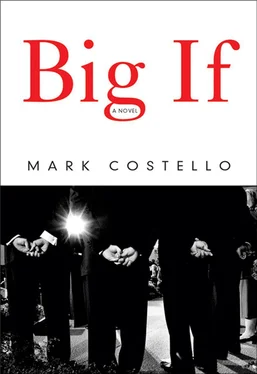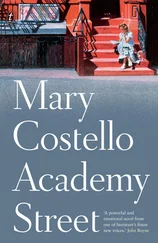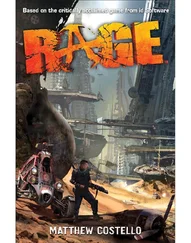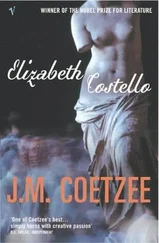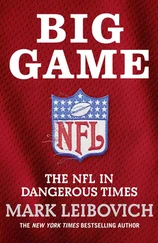Gretchen was a cold and scolding supervisor, richly hated by her agents. Gretchen had her good points, Vi believed — she was brave, she was honest, she did not play favorites, she worked hard and tried to get it right — but Gretchen couldn’t find her stride and settle in. Felker was the opposite: a sedative, quiet, able, slightly professorial (or not exactly so — more like your systems engineer, ready to retire after thirty years at Raytheon), tall, thin, weathered in a pleasant way, conspicuously smart about his heart, a bowl of bran for breakfast every day. Vi, eating with him, heard all about his wife and college dropout son who was learning the guitar, and his farm in Anne Arundel, somewhere near the Chesapeake. Vi could see Lloyd Felker as a modern farmer, an agribusinessman, studying the rainfall and his likely sorghum yields. They said his wife, this Lydia, was a bitch on stilts, a former TV actress of small fame in the ’70s, now a faded beauty, stuck with the antique shops of Anne Arundel County, where she played the scheming moms of Shakespeare with bad rural amateurs. Vi, watching Felker spoon his bran alone, could see him as a henpecked farmer-husband with a loyal dog, or as an older systems engineer, or — and this surprised her — as a traveling insurance man, a guy quite like her father in a way, both men henpecked, dutiful and clueless too, but content and self-contained, their lives pared down to three or four essential elements, and for Felker, one of these was the bran cereal.
They traveled hard through March, April, May, and the crowds grew alien, unreadable, not like a page, not like a book, nothing you could ever close. It started to get pretty weird out there. First it was the pesky paparazzo whom Agent Herc Mercado nearly stomped to death at Epcot. Then it was the hoedown in Ottumwa, Iowa, where an out-of-work machinist carrying a small device got within three feet of the VP. Bobbie Taylor-Niles, working plainclothes near the fiddler, saw the machinist sliding in and put it on the comm as a confirmed grenade. Vi tackled the machinist. Herc Mercado put the boot in, Tashmo helping kick the guy (which was more exertion than old Tashmo usually went in for). The smashed device turned out to be a “portable brain-wave interceptor,” built around a cheap light meter, which the machinist, who had a history of mental illness, hoped to sell to the government. Cameras caught the stomping at the hoedown and for a few days the all-news nets were running several seconds of Vi and the nutcase rolling in the dirt as Herc and Tashmo went for the extra point. Herc was proud of the beating they administered, but Tashmo had to call his wife in Maryland and tell her not to watch CNN for the next few news cycles.
They spent a week in Iowa in May. It rained the whole time. The news was pictures of the rain, the flood of Illinois, the stomping in Ottumwa, and the rain. The stomping didn’t go away until they got to Texas, where everything was dry, and by then their nerves were pretty shot. Felker had briefed them on the specialness of Texas as an operational milieu. Texas was a carry state, he said. Anyone except a felon or a person judged insane by the state court system could, and did, carry a concealed handgun, and fenderbenders on the highways routinely erupted in small-arms fire. Felker said that Texas would always be the Valley of the Shadows to the Service. They had come here once with a president and had left eight hours later with a completely different president, and some things you can’t live down, he said. Memory, futility, disgrace — this was what they carried through the carry state.
They worked a rodeo in San Antonio. The rodeo was in the Alamodome, where the Spurs played basketball, dirt under the lights, snipers in the rafters, dogs on every ramp, troopers in the loge, the Dome within a dome.
They came late, as always. The calf-roping competition was finishing up. The rodeo was billed by the image people as a chance for the VP to shed the cares of office and mingle with the common folk, but the only common folk permitted in his section were friendly politicians, prominent supporters, and bodyguards in leisurewear posing as the common folk. Vi sat behind the VP in jeans, Nikes, a UNH sweat top, and her earbud comm. She was fooling no one and not trying very hard. Someone gave the VP a big white Stetson cowboy hat and he waved it at the crowd to perfunctory applause. He wore the hat for twenty seconds. The photo dogs were swarming angles, what a picture, the VP in a Stetson, waving, grinning, mingling, enjoying the trick-riding interlude as the roadies got the Brahmas loaded in the chutes.
Vi scanned the house and thought about the carry state. As far as she knew, they were surrounded at that moment by twenty thousand common folk exercising their right to bring a loaded Colt to the rodeo. As the VP waved the hat, Vi made eye contact with an older lady in the first row of the next section up. The lady wore cowgirl haute couture and didn’t clap. Vi looked away, looked back. The lady sat there patting the purse in her lap, giving Vi a knowing smile.
Bull riding was the big crowd-pleaser, rodeo’s version of the home-run derby or the slam-dunk competition. The stands exploded at some rugged feat in the dirt ring, at the daring and hilarious bull-distracting clowns, but whenever Vi looked back the lady wasn’t laughing, wasn’t clapping, wasn’t cheering — she was just sitting there, a cowgirl Mona Lisa, smiling at Vi.
The smile haunted Vi all night, and motorcading back to the hotel afterwards, and over pancakes the next morning. Did it mean I got your back — homeboy’s safe as a baby ? Or did it mean I can waste him when I choose — the man exists from minute to minute only with my say-so ? They met the jet at Lackland after breakfast, bound for home by way of Andrews.
Vi remembered the long flight coming back from Texas, everybody worn out, half of them asleep. Gretchen was in front, her accustomed spot, the bench of seats next to the blast-proof door of the VP’s stateroom, doing admin on her laptop like a teacher grading papers during study hall. Felker was across the aisle, munching carrot sticks, reading the national threat roundup for the day. Vi was in the next row with Bobbie Taylor-Niles, who was dozing fitfully, kicking all around, talking to three men in her sleep, a guy named Buck, a guy named Rusty, and a guy named Murph, having quite a dream it seemed. The SWATs were sleeping in formation, rather like a herd, and the snipers, further back, were deep into Nintendo. A hard-core group was playing poker on a fold-down table, Tashmo, Herc Mercado, and O’Teen.
They were almost halfway home, flying over Nashville, when Vi saw Fundeberg, the VP’s campaign imageer, ducking through the door into the Service cabin, tooling down the aisle.
“Little change of plans here, Gretchen,” Fundeberg announced. “There’s flooding on the Mississippi. We’ve got to let those people know we care. We bring the balm of disaster area designation, a hundred million smackeroos. We talked to FEMA and it’s all set up — a little photo op, won’t take but an hour. They’ve got a town picked out. Hinman, Illinois.”
Gretchen, to her credit, tried to fight the photo op, but she was never strong enough to handle Fundeberg. She said, “I’ll talk to Plans. I’ll put you there in forty-eight.”
Vi felt the plane already banking.
Fundeberg said, “I don’t think that’s gonna fly.”
Gretchen called the field, St. Louis station, requesting coverage for Hinman, Illinois, that’s Harry-Ida-Nancy-Monkey-Apple-Nixon, Illinois. The St. Louis SAC told her she was crazy.
He said, “The whole county’s underwater.”
Gretchen said, “Then use a boat, I don’t care. Just get some people over there.”
Читать дальше
